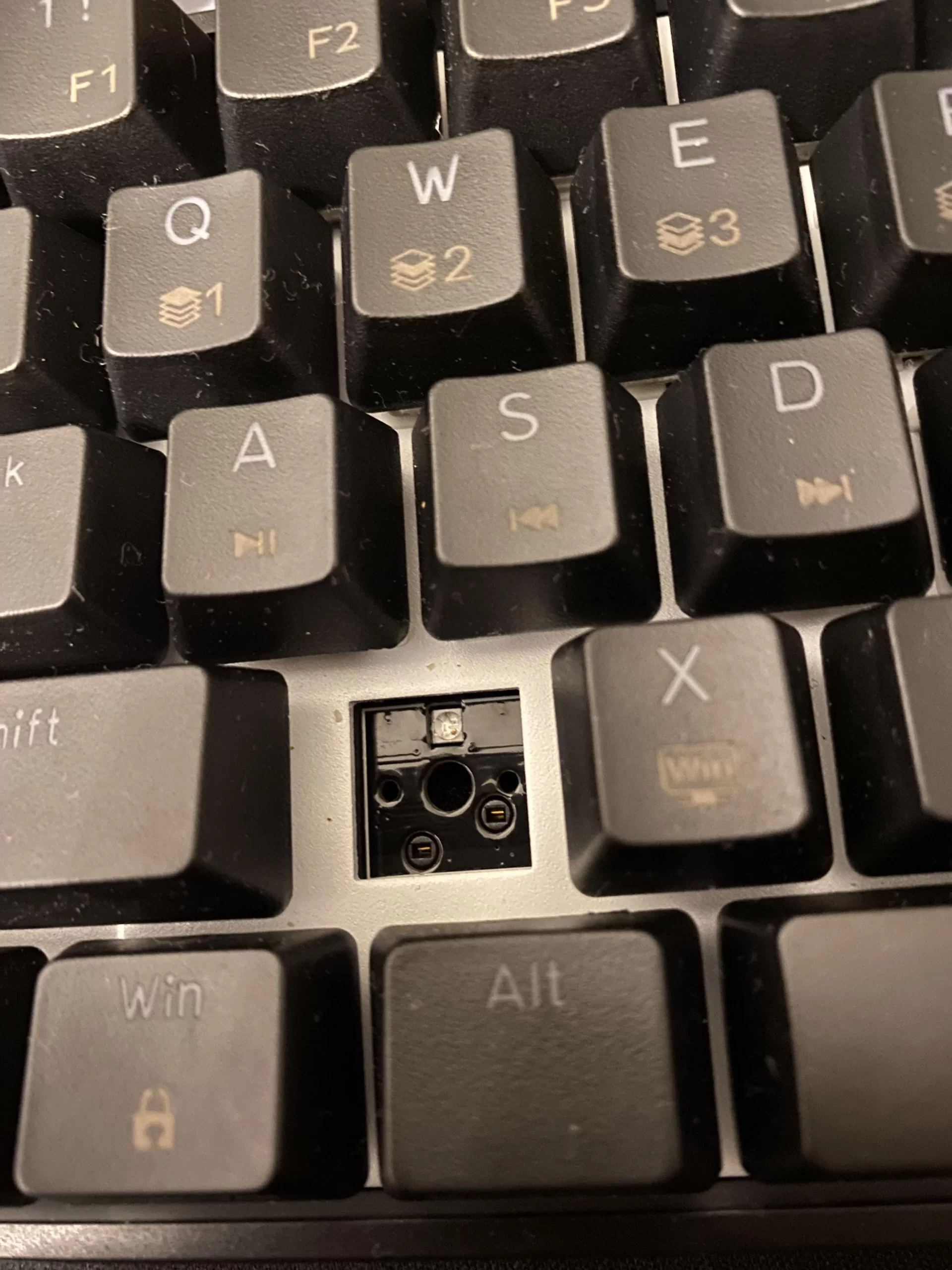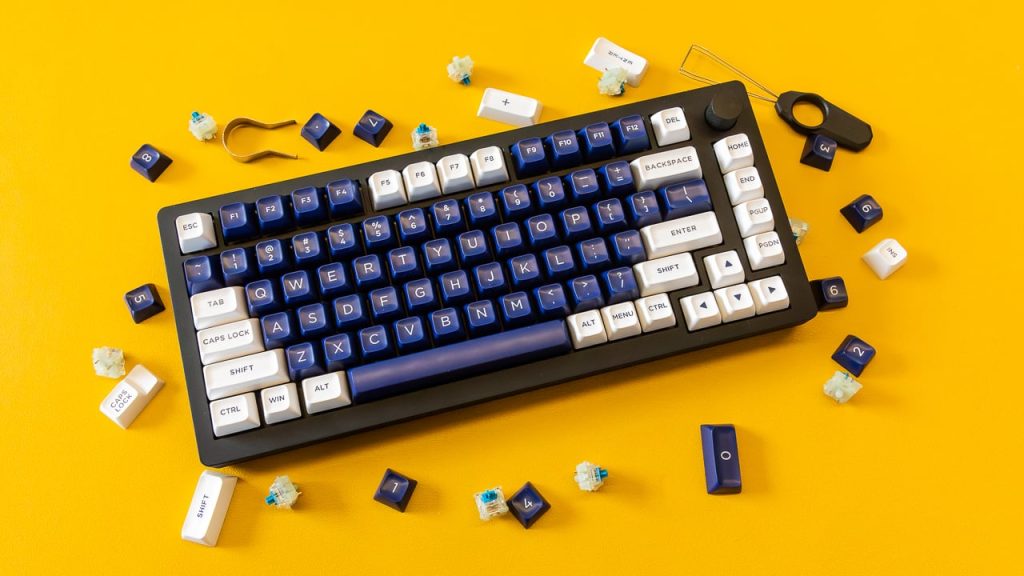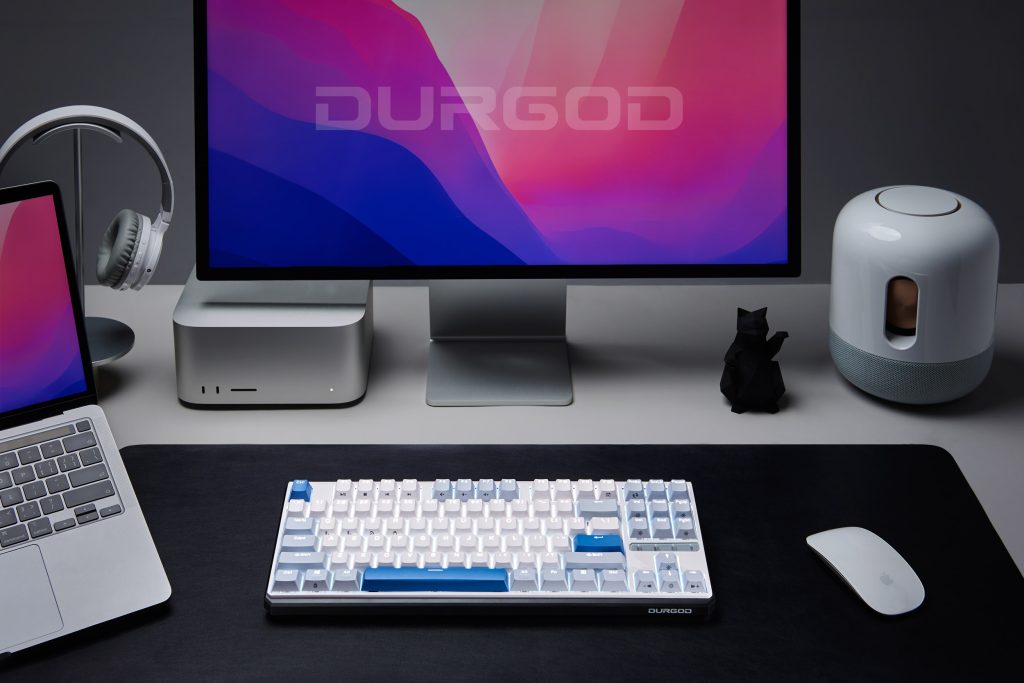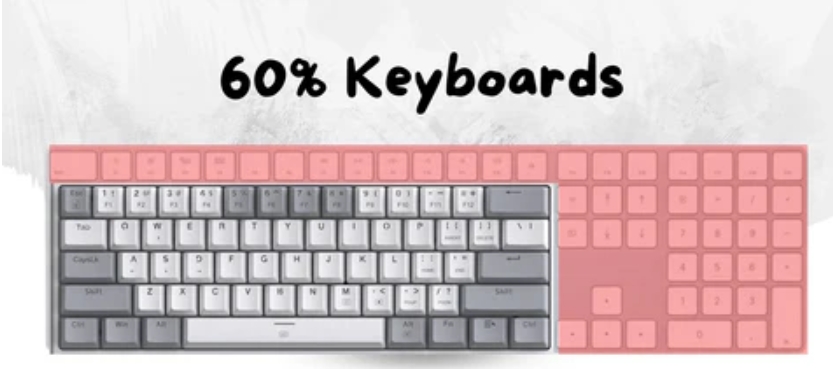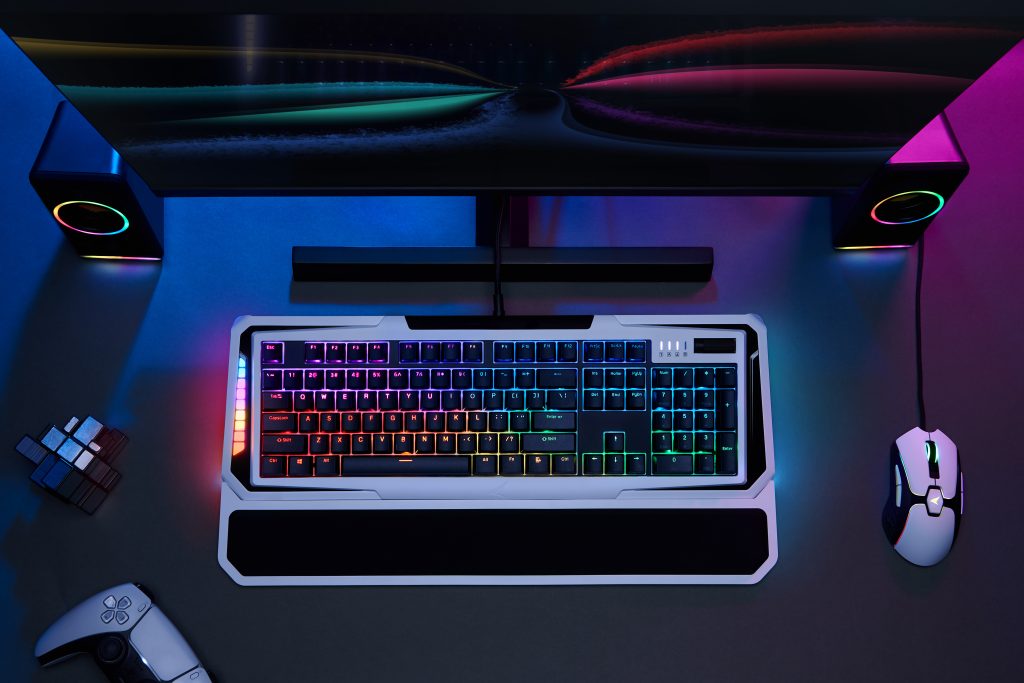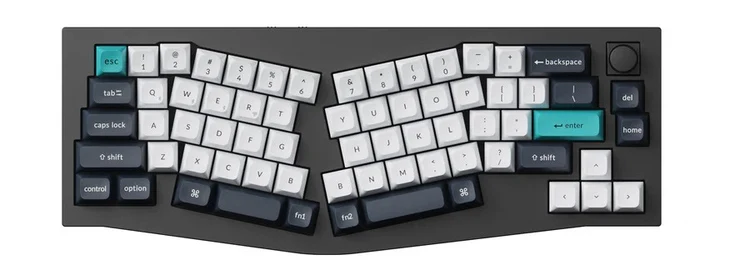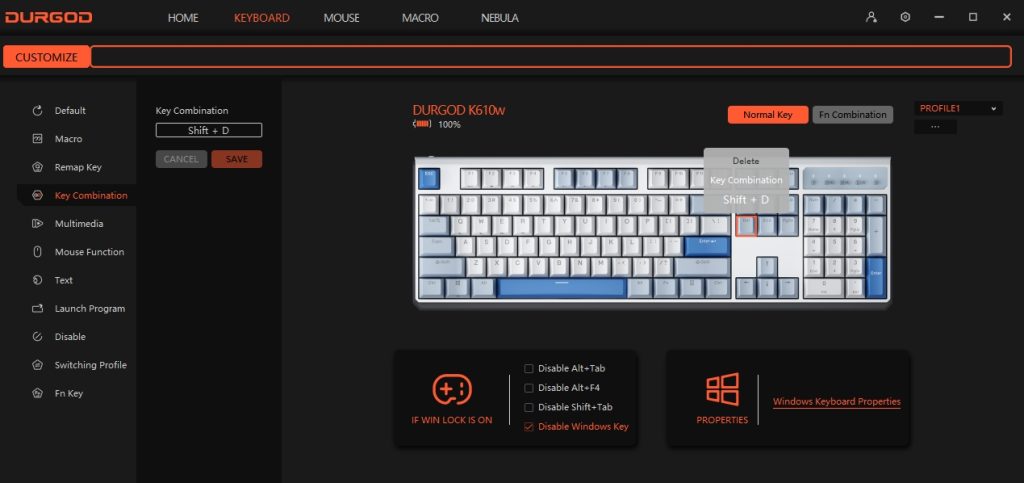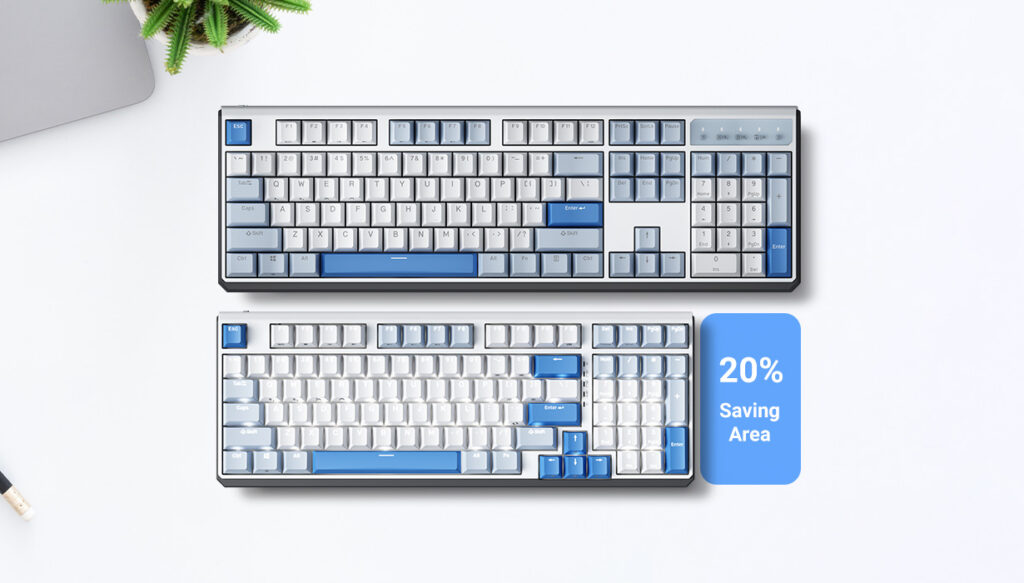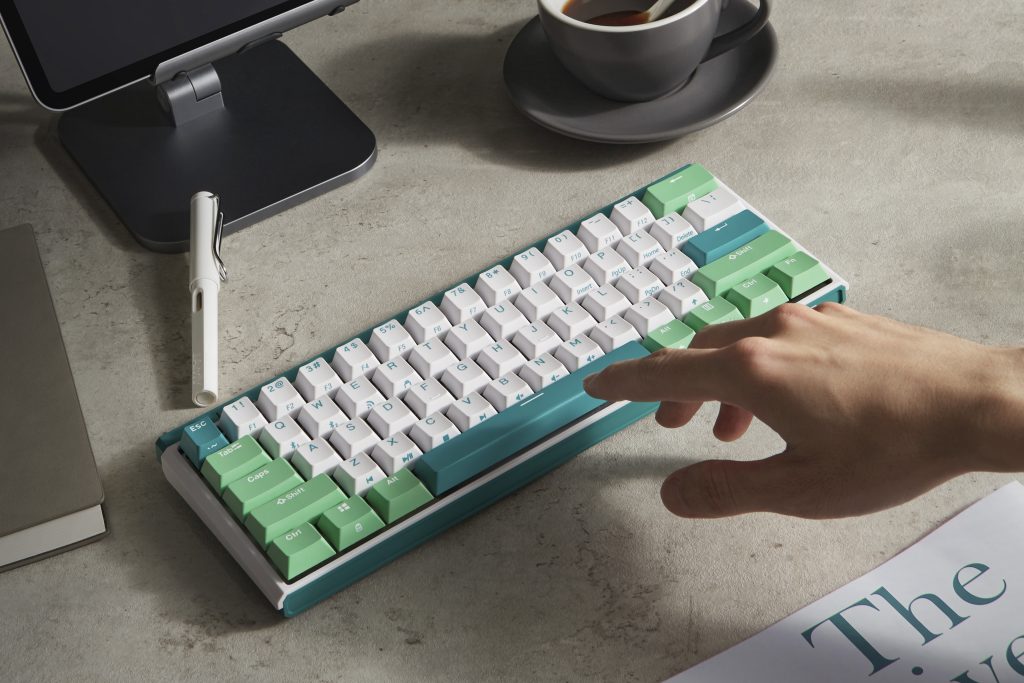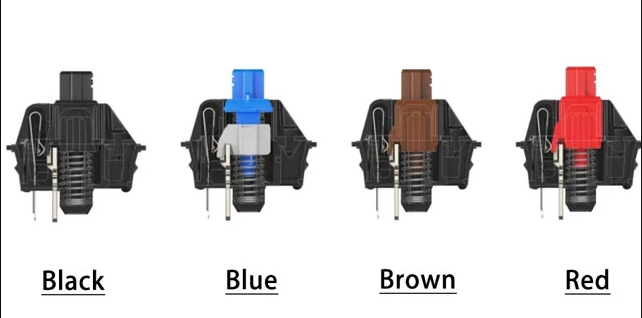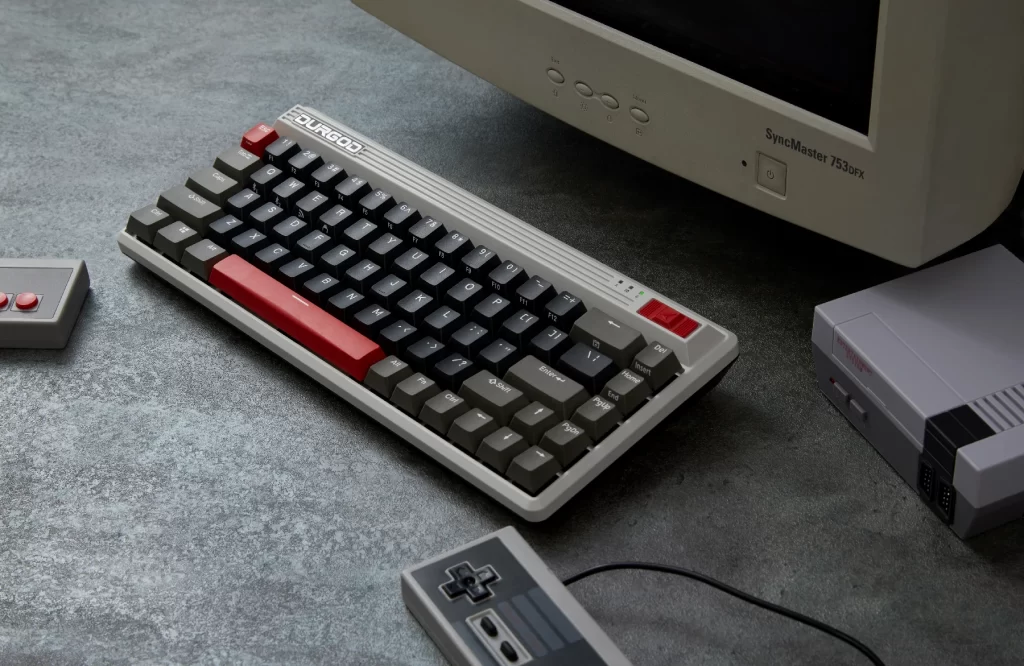A thorough comparison of mechanical, membrane, conductive adhesive, and capacitive keyboards involves examining various aspects like price, functionality, user community, and application scenarios. Each type has its unique characteristics, pros, and cons, catering to different user preferences and needs.
Mechanical Keyboard
Pros:
- Tactile Feedback: Offers excellent tactile feedback and distinct actuation points.
- Durability: Generally more durable, with switches often rated for millions of keypresses.
- Customizability: High degree of customization in terms of switches, keycaps, and layouts.
- Typing Experience: Preferred by typists and gamers for precision and satisfying typing feel.
Cons:
- Price: Tends to be more expensive.
- Noise: Can be louder than other types, especially clicky switches.
- Weight: Often heavier, making them less portable.
Community and Application:
- Enthusiasts and Gamers: Large enthusiast community, popular in gaming and typing-intensive tasks.
Membrane Keyboard
Pros:
- Cost-Effective: Less expensive to manufacture and buy.
- Quiet: Quieter than mechanical one.
- Lightweight and Slim: Often more compact and portable.
Cons:
- Tactile Feedback: Lacks the tactile feedback of mechanical switches.
- Durability: Generally less durable than mechanical one.
- Repairability: Difficult to repair individual keys.
Community and Application:
- General Consumers: Common in office environments, schools, and general consumer use.
Conductive Adhesive Keyboard
Pros:
- Low Profile: Often slim and lightweight.
- Quiet Operation: Quieter than mechanical one.
- Cost-Effective: Relatively inexpensive to produce.
Cons:
- Typing Experience: May lack the satisfying tactile response of mechanical keyboards.
- Durability and Repair: Conductive material can wear out or lose effectiveness.
Community and Application:
- Consumer Electronics: Used in remote controls, calculators, and specific industrial applications.
Capacitive Keyboard
Pros:
- Durability: No physical contact is required for key actuation, potentially increasing lifespan.
- Typing Experience: Can offer a unique and smooth typing experience.
- Customizable Actuation: Some capacitive keyboards allow for actuation point customization.
Cons:
- Price: Often more expensive than membrane one.
- Repairability: More complex to repair than mechanical one.
Community and Application:
- Enthusiasts and Professionals: Favored by keyboard enthusiasts and professionals who prefer a different typing feel.
Comparison in Price, Functionality, and User Community
- Price: Membrane and conductive adhesive keyboards are generally the most cost-effective. Mechanical and capacitive keyboards are on the higher end.
- Functionality: Mechanical keyboards excel in customization and tactile response. Capacitive keyboards offer a unique typing experience with high durability. Membrane and conductive adhesive keyboards are valued for their simplicity and quiet operation.
- User Community: Mechanical and capacitive keyboards have strong enthusiast communities. Membrane keyboards are widespread among general consumers. Conductive adhesive one are more niche, often found in specific applications rather than widespread consumer use.
Applied Occasion
- Mechanical Keyboards: Ideal for gaming, professional typing, and where tactile feedback is desired.
- Membrane Keyboards: Suitable for general office work, schools, and where cost or noise is a concern.
- Conductive Adhesive Keyboards: Common in specific electronic devices and where a low profile is needed.
- Capacitive Keyboards: Preferred in scenarios where a combination of unique typing feel and durability is required, such as in certain professional settings.
Each keyboard type has its strengths and caters to different preferences and needs, influencing its popularity and application in various environments.
For more knowledge, visit DURGOD.



